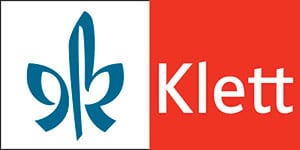Klett is a leader among publishers of textbooks, both in our country and across the region, because it listens carefully to the needs of users, both school pupils and teachers, with a desire to provide them with ever better support in teaching every school year
Digital textbooks will play an increasingly important role in education because they extend beyond the frameworks of time and space that limit print editions, and therefore can be used on computers, tablets or phones, anywhere and at any time.
This one of the things we learned from our interlocutor Gordana Knežević Orlić, Managing Director, Klett Publishing House.
You represent part of one of the world’s biggest publishing groups, and this year you are commemorating 15 years of operations in Serbia. In your opinion, what makes a good textbook?

– A good textbook is, first and foremost, one that constantly strives towards innovation and improvement, monitors new trends and prepares today’s pupils for the future. At Publishing
Company Klett we listen carefully to the needs of the users of our textbooks, both pupils and teachers, with a desire to provide them with even better support in teaching every school year.
We are all aware of the changes taking place in the classroom, which include a shift in the focus of work from an “attitude to teaching” to pupils’ activities and the learning process among learners. Our textbooks and additional materials have just such a concept, and the emphasis is on the well-formulated activation of students through quality assignments, questions and additional information.
Publishing Company Klett in Serbia has more than 1,000 outstanding authors in its team, including practitioners from primary and secondary schools, as well as university professors
What are the advantages of digital textbooks? Do teachers and lecturers recognise their significance?
– Digital textbooks have numerous advantages. It is firstly important that they are completely aligned with the needs of the new generations who are growing up in an era of constant technological advancement. These textbooks are full of multimedia and interactive contents, and they cover the needs of contemporary generations from the earliest stage of childhood.
Apart from that, this kind of textbook enables an individual approach of each pupil – they master the material at their own pace and according to their own possibilities and interests.
The digital textbooks also extend beyond frameworks of time and space that limit print editions. Pupils can use them on a computer, tablet, or telephone, anywhere and at any time. Such availability is very important today, given that time is today’s most important resource.
When it comes to teachers and lecturers, they consider that digital content enriches every lesson. With their help, pupils better master new concepts, because they are presented in a way that is familiar to children. It is also helpful to teachers that they can monitor the achievements of their pupils or have an insight into how successfully they’ve mastered the material, how quickly the student resolves tasks, what they found more difficult to master etc.
Are children who use digital textbooks more motivated? Do they have better attention spans? Do they achieve better results?
Digital textbooks have perhaps brought the most in the area of better motivating pupils. Children are incomparably more motivated than with print editions, they find the contents of textbooks more interesting, so while acquiring new knowledge they are also entertained in some way. Teachers relate to us how lessons given with the use of digital textbooks are significantly more dynamic and creative, and how the children have increased levels of concentration. It is thus inevitable that pupils achieve better test results.